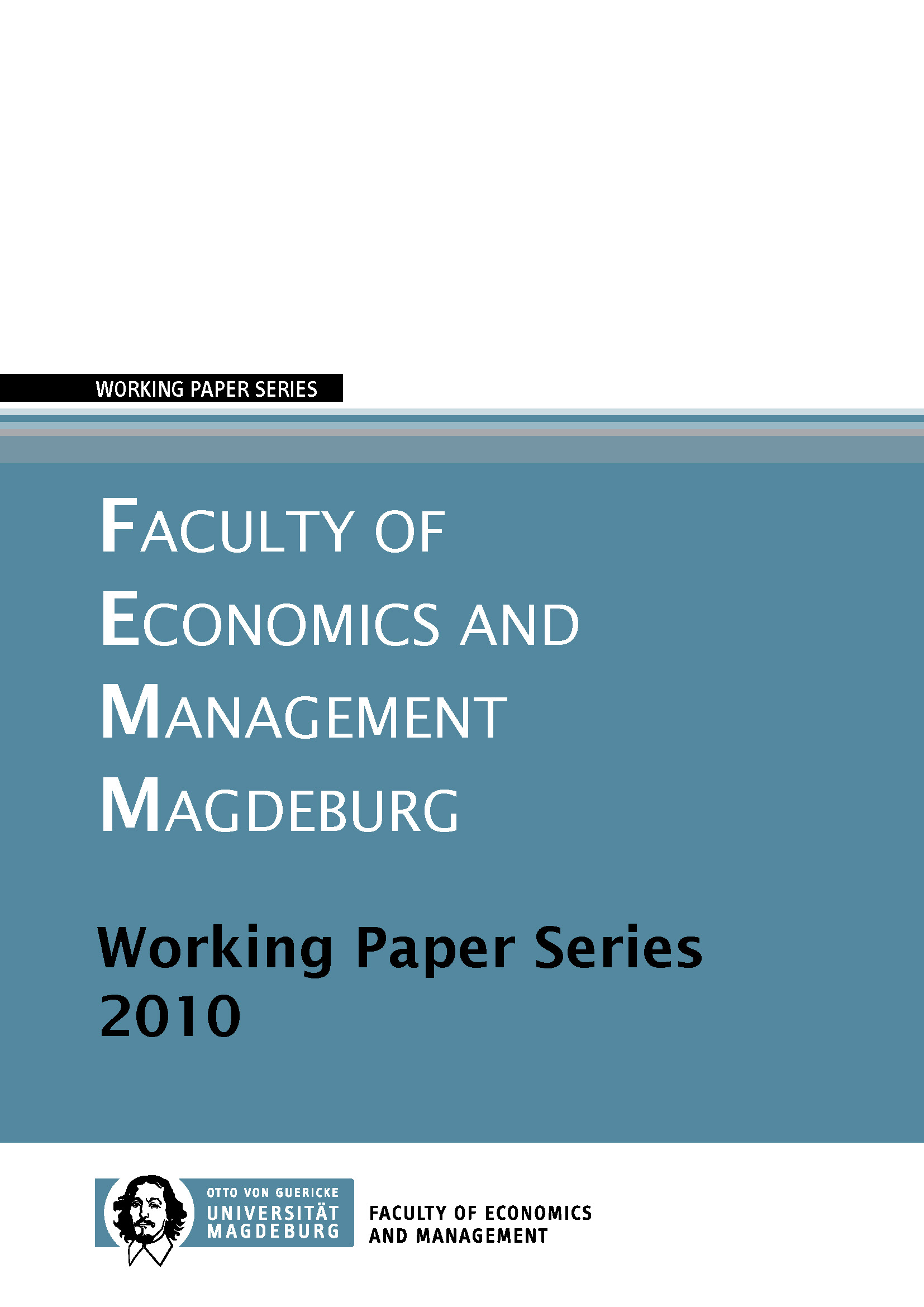Corporate Governance, Human Capital Investment, and Job Termination Clauses
A Lesson from the Literature on Hold-Up
DOI:
https://doi.org/10.24352/UB.OVGU-2018-440Abstract
This paper examines a principal-agent problem between a manager (principal) and an employee (agent). At the contracting date uncertainty with regard to the profitability of the relationship is present. Once the contract is signed, the employee performs a specific investment that reduces his disutility from working hard. After that, but before the employee performs his effort, the uncertainty is resolved. The manager and the employee are free to renegotiate the contract at this point. Moreover, we distinguish three settings with respect to the principal's and the agent's options to terminate the relationship irrespective of possible renegotiation. If both parties are free to quit we find that an underinvestment problem with regard to the employee's personal investment is present. If none of the parties are allowed to breach the contract, an overinvestment problem arises. Finally, allowing the employee to quit but not the manager allows achieving first best investment.


